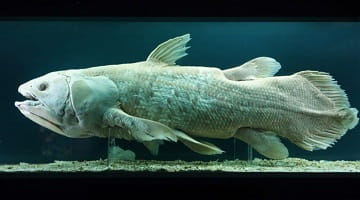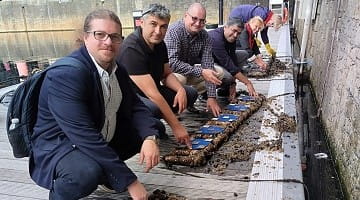About this course
LJMU's Exercise Physiology MSc is geared towards both classical physiology and research at the forefront of molecular exercise physiology.
- Study on a programme developed by world-leading researchers in our pioneering School of Sport and Exercise Sciences
- Access state-of-the-art physiology and biochemistry laboratories in our award-winning Tom Reilly Building
- Benefit from a strong emphasis on active learning and practical training
- Look forward to a variety of career opportunities, including working as an Exercise Physiologist in either sport science/athletic support or health assessment contexts, further study at Doctoral level and teaching and lecturing in science
- Study full-time (1 year) or part-time (2 years)
There has never been a more exciting time to undertake an MSc in Exercise Physiology. Sport represents one of the worlds major businesses and scientists have an increasingly prominent role in working with athletes, coaches, governing bodies and industry to help optimise elite performance.
This Masters programme is ideal if you want to go on to specialise in physiology-related studies at a doctoral level for academic and professional development or if you aspire to a professional career in exercise physiology.
During your studies you will be provided with detailed knowledge of physiology applied to sport and exercise contexts. The programme is also designed to extend your knowledge beyond 'classical' exercise physiology studies and into the new arena of molecular exercise physiology. The curriculum is informed by a world class research infrastructure with over 20 full-time academic staff and support staff contributing to the taught modules and research dissertation.
You will be provided with extensive practical experience and academic development in fundamental scientific technical including research methods, statistical analysis and scientific communication.
As part of your course you will complete a record of competency in physiological assessment, deliver a conference presentation and gain first-hand experience of 'wet lab' techniques including western blotting and proteomics.
Course modules
Discover the building blocks of your programme
Your programme is made up of a number of core modules and a Research Project as detailed below.
Further guidance on modules
Modules are designated core or optional in accordance with professional body requirements, as applicable, and LJMU’s Academic Framework Regulations. Whilst you are required to study core modules, optional modules provide you with an element of choice. Their availability may vary and will be subject to meeting minimum student numbers.
Where changes to modules are necessary these will be communicated as appropriate.
Core modules
Research Methods
20 credits
20 credits
This module of study is available to provide mastery and expertise in quantitative research strategies, methods and techniques, specifically focussed on quantitative data so that students can undertake postgraduate research. The module aims to encourage critical understanding of how quantitative data should be handled and analysed using a variety of approaches. The module will provide the opportunity to develop critical analysis of statistical concepts and procedures, train them to use statistical analysis software and extend their knowledge of the experimental and research design process.
This module is fundamental to the analysis of quantitative data. It is expected that students develop the data handling and analysis skills that they will directly use in their MSc project.
Research Project
60 credits
60 credits
This module provides the opportunity for students to further develop and extend their knowledge and practical experience of the research process, and to learn and make use of advanced research skills.
After completing the module students should be able to:
- Produce a piece of independent research in journal article format
- Critically evaluate the concepts, methodologies and associated literature underpinning the research
- Assimilate, integrate and critically discuss the research findings
- Justify and critically discuss the research and research process
Physiological Assessment
20 credits
20 credits
This module aims provide extensive theoretical and practical training in exercise physiology measurements, evaluation and reporting to prepare students to apply this knowledge in professional laboratory and field based settings.
Molecular Exercise Physiology
20 credits
20 credits
This module aims to provide the knowledge and practical skills to contribute to this exciting area of research. It will also provide training in traditional and contemporary protein analysis.
Wearable Technology for Exercise Prescription
20 credits
20 credits
This module aims to provide theoretical understanding and practical training in the construction and delivery of performance and health-related exercise programmes. In addition you will critically examine the validity and appraise the merits of monitoring exercise performance using new, wearable technologies.
Fundamental Sports Performance Physiology
20 credits
20 credits
The purpose of this module is to provide students with an integrative insight into the physiological mechanisms (e.g. biochemical, hormonal, muscular, cardiovascular, and neural) that maximise athletic performance of athletes competing across a large range of sporting disciplines involving high-intensity, intermittent or endurance exercise; and how these mechanisms may vary between different populations and in different environments. Additionally, students will be introduced to a range of physiological assessments and laboratory techniques to further enhance their understanding of physiological principles, and which a performance physiologist may use to monitor athletes performance/recovery.
Contemporary Research in Exercise Physiology
20 credits
20 credits
This module encompasses a series of keynote lectures highlighting prominent research themes within the Research Institute for Sport and Exercise Sciences. The module aims to develop scientific communication (written and oral) skills and the ability to critically appraise scientific literature.
Your Learning Experience
An insight into teaching on your course
Study hours
Students will have approximately two hours per module per week of taught material and/or seminar work. This may be supplemented by reflective tutorials during the semester. Private study will cover both time spent studying (for example in the library), collecting data in the laboratory and completing directed tasks and coursework. Taught sessions will provide an orientation to the topic and opportunity for classroom discussion and debate. You will also be expected to read widely using primary sources of reference material.
Teaching methods
Our teaching is delivered primarily through laboratory practical's and student-centred learning techniques, such as problem-based learning.
Applied learning
The programme provides extensive practical experience in both physiology laboratory tests and wet laboratory bench skills. Academic development is also provided in fundamental scientific techniques including research methods, statistical analysis and scientific communication.
How learning is monitored on your programme
To cater for the wide-ranging content of our courses and the varied learning preferences of our students, we offer a range of assessment methods on each programme.
Where you will study
What you can expect from your School
The MSc programme is delivered in the City Campus, in the £28million Tom Reilly Building, which provides world-class sport and exercise science facilities including 800 m2 of exercise physiology laboratory space and 100 m2 of molecular/ biochemistry laboratory space.
Course tutors

Prof Jatin Burniston
- Programme Leader
I am passionate about the Exercise Physiology programme and, in particular, I love teaching my module on molecular exercise physiology.
I am passionate about the Exercise Physiology programme and, in particular, I love teaching my module on molecular exercise physiology.
Professor Burniston has pioneered proteomic investigation of exercise-induced adaptations in cardiac and skeletal muscle. His recent publications place LJMU as one of the worlds leading institutions applying proteomic techniques in exercise physiology. Professor Burniston uses mass spectrometry as well as other -omics approaches to investigate muscle responses to exercise training. His long-term objective is a systems biology-level understanding of the mechanisms underpinning the health benefits of exercise.
Career paths
Further your career prospects
LJMU has an excellent employability record with 96% (HESA 2018) of our postgraduates in work or further study six months after graduation. Our applied learning techniques and strong industry connections ensure our students are fully prepared for the workplace on graduation and understand how to apply their knowledge in a real world context.
Cutting-edge research in Exercise Physiology relies heavily on molecular techniques and it is imperative that future graduates are able to contribute to this high-impact area of exercise science. On graduation, you may go into teaching and lecturing in schools, colleges and universities. Many students choose to continue in education, research or applied sports science, with a significant number continuing their studies to Doctoral level.
Past graduates have taken positions as applied practitioners in sports science support programmes within a variety of professional sports clubs, national governing bodies of sport, or as strategic sport science officers and consultants in professional sport settings.
Tuition fees and funding
- Home part-time per credit:
- £56.64
The University reserves the right to increase tuition fees in accordance with any changes to the maximum allowable fees set by the UK Parliament. In the event of such a change, any fee increase will be subject to a maximum cap of 10% of the total course cost as originally stated at the time of your offer.
Fees
The fees quoted at the top of this page cover registration, tuition, supervision, assessment and examinations as well as:
- library membership with access to printed, multimedia and digital resources
- access to programme-appropriate software
- library and student IT support
- free on-campus wifi via eduroam
Additional costs
Although not all of the following are compulsory/relevant, you should keep in mind the costs of:
- accommodation and living expenditure
- books (should you wish to have your own copies)
- printing, photocopying and stationery
- PC/laptop (should you prefer to purchase your own for independent study and online learning activities)
- mobile phone/tablet (to access online services)
- field trips (travel and activity costs)
- placements (travel expenses and living costs)
- student visas (international students only)
- study abroad opportunities (travel costs, accommodation, visas and immunisations)
- academic conferences (travel costs)
- professional-body membership
- graduation (gown hire etc)
Funding
There are many ways to fund postgraduate study for home and international students. From loans to International Scholarships and subject-specific funding, you’ll find all of the information you need on our specialist postgraduate funding pages.
Please be aware that the UK’s departure from the EU may affect your tuition fees. Learn more about your fee status and which tuition fees are relevant to you.
Entry requirements
You will need:
Qualification requirements
Alternative qualifications considered
Candidates would normally be expected to have a good honours degree (first class or upper second class) in sport science, or a related discipline with a substantial physiology component at level 6. The MSc Exercise Physiology programme typically enrols 20 students per year. Demand for places is high and applicants are selected on merit, in some instances interviews may be conducted at the discretion of the Programme Leader. Within the application, the Personal Statement should be regarded as an important opportunity to evidence (i) passion for exercise physiology, (ii) ability to make the most of opportunities and (iii) autonomy/ motivation to go beyond minimum requirements. In addition, applicants may be required to provide copies of their research dissertation or equivalent evidence of their scientific training or experience.
International requirements
Other international requirements
Overseas students whose first language is not English will require an IELTS score of 6.5 or above with a minimum of 5.5 in each component. Admission is made in line with the current equal opportunities regulations adopted by the University.
How to apply
Securing your place at LJMU
To apply for this programme, you are required to complete an LJMU online application form. You will need to provide details of previous qualifications and a personal statement outlining why you wish to study this programme.
Your university life
From accommodation and academic support to clubs and societies. Find out what LJMU has to offer.
Related Links
Talk to our students
Connect with a current LJMU student for advice and guidance on university life, courses and more.
See what our students are saying
At LJMU we want you to know you’re making the right choice by studying with us. You can see what our students are saying about their experience with us through their reviews on the following websites:
Related Links
News and views
Browse through the latest news and stories from the university










The University reserves the right to withdraw or make alterations to a course and facilities if necessary; this may be because such changes are deemed to be beneficial to students, are minor in nature and unlikely to impact negatively upon students or become necessary due to circumstances beyond the control of the University. Where this does happen, the University operates a policy of consultation, advice and support to all enrolled students affected by the proposed change to their course or module.
















